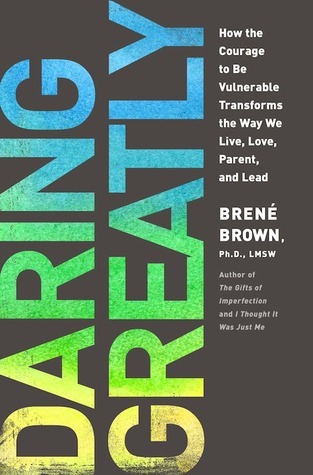
The Gifts of Imperfection
Book Description
Perfection is a mirage, and chasing it can lead to a lonely path of despair. In "The Gifts of Imperfection," Brené Brown uncovers the transformative power of embracing vulnerability and authenticity. With raw honesty, she reveals how letting go of the relentless pursuit of perfection frees us to live wholeheartedly. Each chapter offers a deeply resonant invitation to shed the heavy burden of judgment and self-doubt, igniting a journey toward true belonging and self-acceptance. What if the key to a richer, more fulfilled life lies in celebrating our flaws rather than hiding them away?
Quick Book Summary
In "The Gifts of Imperfection," Brené Brown explores how society’s demands for perfection can damage our self-worth and well-being. She challenges the myth that being flawless is possible or desirable, asserting that embracing vulnerability and imperfection is essential for leading a wholehearted life. Brown introduces the concept of wholehearted living, grounded in courage, compassion, and connection. She encourages readers to let go of shame, fear, and self-judgment, replacing them with self-acceptance and authenticity. By sharing her own stories and research, Brown provides practical guidance for cultivating resilience, gratitude, and self-compassion. Ultimately, the book is an invitation to embrace our flaws as gifts, unlocking a path to genuine joy and fulfillment.
Summary of Key Ideas
Table of Contents
The Courage to Embrace Vulnerability
Brené Brown opens the book by examining society’s unrealistic standards of perfection and how striving to meet these ideals can create feelings of shame, anxiety, and disconnection. She illustrates how these pressures lead us to mask our real selves, believing that vulnerability is a weakness. However, Brown argues that the willingness to be open and vulnerable is the foundation for courage and personal growth, setting the stage for a life lived more fully and authentically.
Letting Go of Perfectionism
The book then delves into the importance of relinquishing perfectionism. Brown distinguishes perfectionism from healthy striving; perfectionism is rooted in fear of judgment and failure, while healthy striving is about wanting to improve for oneself. Through research and personal anecdotes, she demonstrates how accepting our limitations and flaws can liberate us from constant self-criticism, allowing us to enjoy deeper connections and more meaningful accomplishments.
Cultivating Authenticity and Belonging
A central theme is cultivating authenticity and a sense of belonging. Brown emphasizes that belonging starts with belonging to ourselves—accepting who we are, even when we fall short of expectations. By practicing self-compassion and resisting the urge to conform, we open ourselves to genuine relationships and communities that value us for our truest selves, fueling the self-acceptance necessary for wholehearted living.
Resilience Through Compassion and Gratitude
Gratitude, resilience, and compassion are highlighted as keys to moving through life’s challenges. Through practical advice, Brown suggests gratitude journaling and self-kindness as daily tools to combat shame and grow emotionally. Resilience comes from embracing difficulties rather than numbing pain, building strength through connection, and learning from setbacks instead of allowing them to derail us.
Wholehearted Living and Self-Acceptance
The book concludes with an actionable framework for wholehearted living. Brown encourages readers to engage with life wholeheartedly by embracing imperfection, setting boundaries, cultivating joy, and letting go of what others think. The ultimate message is that embracing our vulnerabilities and imperfections is not only liberating but essential to living a meaningful, connected, and joyful life.
Download This Summary
Get a free PDF of this summary instantly — no email required.





